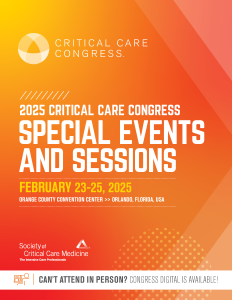Cardiovascular
Research Snapshot Theater: Cardiovascular, Adult III
(147) The Relationship Between Intraoperative ETCO2 and In-Hospital Mortality in Cardiac Surgery
Sunday, February 23, 2025
12:15pm - 1:15pm Eastern Time
Location: Connections Central - RST 04

Yang Zhang, N/A (he/him/his)
Hefei, Anhui, China (People's Republic)
- MY
Min Yang, n/a
Professor
The Second Affiliated Hospital of Anhui Medical University, United States
First Author(s)
Co-Author(s)
Introduction: Intraoperative end-tidal carbon dioxide (ETCO2) is considered to be associated with postoperative complications and mortality following surgical procedures. This study aims to evaluate the relationship between ETCO2 levels and in-hospital mortality among patients undergoing cardiac surgery.
Methods: A retrospective analysis was performed on patients who underwent cardiac surgery at Seoul National University Hospital from 2011 to 2020. The average intraoperative ETCO2 level was treated as the primary exposure variable. The primary outcome was in-hospital mortality. Secondary outcomes included intensive care unit (ICU) length of stay and total hospital stay. Cox proportional hazards regression assessed the association between ETCO2 and in-hospital mortality. Linear regression was used for secondary outcomes. Restricted cubic splines (RCS) were used to determine if a nonlinear relationship existed between ETCO2 and in-hospital mortality. The optimal cutoff value for ETCO2 was identified using the Youden index, and patients were stratified based on this cutoff. Kaplan-Meier survival analysis compared survival rates between groups.
Results: A total of 2,183 patients were included, with 2,081 in the survival group and 102 in the mortality group (4.7%). Compared to the survival group, the mortality group had a lower average intraoperative ETCO2 (31.3 mmHg vs. 30.2 mmHg, P < 0.01). Adjusted Cox regression analysis showed a negative association between ETCO2 and in-hospital mortality (HR 0.89, 95% CI 0.81-0.98, P = 0.01), with RCS indicating a linear relationship. Secondary outcome analysis demonstrated a negative correlation between ETCO2 and ICU length of stay (β -0.27, 95% CI -0.38 to -0.17, P < 0.01), but no significant association with total hospital stay (β 0.56, 95% CI -0.26 to 1.38, P = 0.18). Kaplan-Meier analysis indicated significantly higher in-hospital survival rates in patients with ETCO2 > 30.8 mmHg compared to those with ETCO2 ≤ 30.8 mmHg.
Conclusions: Intraoperative ETCO2 levels are negatively associated with in-hospital mortality in cardiac surgery patients and inversely correlated with ICU length of stay, but not with total hospital stay.
Methods: A retrospective analysis was performed on patients who underwent cardiac surgery at Seoul National University Hospital from 2011 to 2020. The average intraoperative ETCO2 level was treated as the primary exposure variable. The primary outcome was in-hospital mortality. Secondary outcomes included intensive care unit (ICU) length of stay and total hospital stay. Cox proportional hazards regression assessed the association between ETCO2 and in-hospital mortality. Linear regression was used for secondary outcomes. Restricted cubic splines (RCS) were used to determine if a nonlinear relationship existed between ETCO2 and in-hospital mortality. The optimal cutoff value for ETCO2 was identified using the Youden index, and patients were stratified based on this cutoff. Kaplan-Meier survival analysis compared survival rates between groups.
Results: A total of 2,183 patients were included, with 2,081 in the survival group and 102 in the mortality group (4.7%). Compared to the survival group, the mortality group had a lower average intraoperative ETCO2 (31.3 mmHg vs. 30.2 mmHg, P < 0.01). Adjusted Cox regression analysis showed a negative association between ETCO2 and in-hospital mortality (HR 0.89, 95% CI 0.81-0.98, P = 0.01), with RCS indicating a linear relationship. Secondary outcome analysis demonstrated a negative correlation between ETCO2 and ICU length of stay (β -0.27, 95% CI -0.38 to -0.17, P < 0.01), but no significant association with total hospital stay (β 0.56, 95% CI -0.26 to 1.38, P = 0.18). Kaplan-Meier analysis indicated significantly higher in-hospital survival rates in patients with ETCO2 > 30.8 mmHg compared to those with ETCO2 ≤ 30.8 mmHg.
Conclusions: Intraoperative ETCO2 levels are negatively associated with in-hospital mortality in cardiac surgery patients and inversely correlated with ICU length of stay, but not with total hospital stay.

